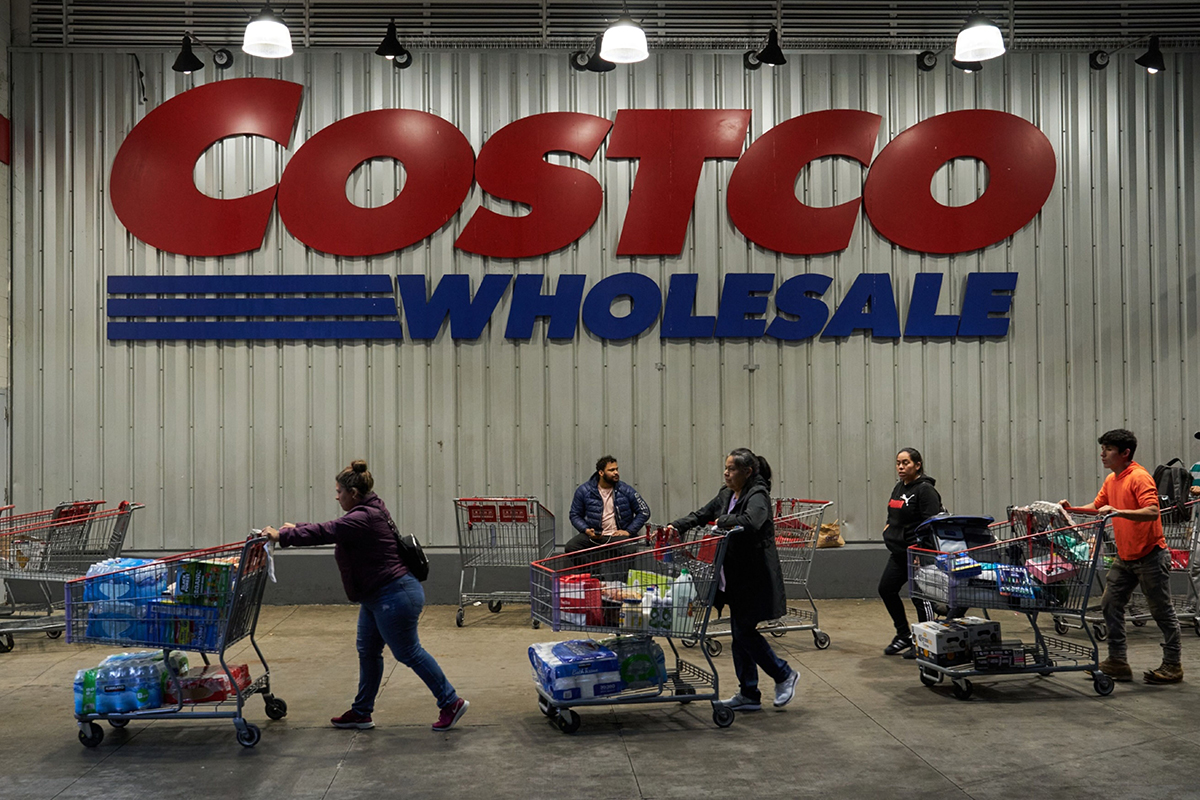 Shoppers outside a Costco store in New York. Photographer: Bing Guan/Bloomberg
Shoppers outside a Costco store in New York. Photographer: Bing Guan/Bloomberg
Costco Wholesale Corp.'s Richard Galanti, who has served as CFO of the warehouse club retailer since 1985, says he views the more-than-decade-long period of low interest rates in the United States as an anomaly.
Finance chiefs at many companies face a balancing act due to recent increases in financing costs, according to Galanti, one of the longest-serving CFOs at an S&P 500 company. Costco is considering repaying a $1 billion bond maturing in 2024 with cash and won't be buying back any debt ahead of its maturity, he said, adding that refinancing at current rates doesn't make sense.
Recommended For You
Galanti spoke with Bloomberg News in an October 30 interview. Below are highlights of the conversation, which have been condensed and edited for clarity.
Bloomberg: Financing costs have risen sharply since March 2022, when the Federal Reserve started raising interest rates. How far have low rates influenced corporate decision-making?
Richard Galanti: Look, when money is flowing, it's easy for some to get a little ahead of themselves. If interest rates are lower, more projects make sense. And then, if the tide turns the other way, that's the ultimate balancing act for the capital structure.
Bloomberg: The federal funds rate ranges from 5.25 percent to 5.50 percent now, and many companies struggle with significant debt burdens.
RG: It's not that high [historically]—unless you went through the last several years where we were all very spoiled in terms of interest rates. We [at Costco] don't want to have to go and borrow a lot. The good thing is, we don't need to. We have over $12 billion in cash, cash equivalents, and short-term investments, and less than $7 billion in debt. The average is over five years in maturity and a just under 2 percent fixed interest rate.
Bloomberg: You have $1 billion in bonds coming due in May 2024. Are you looking to pay it down with free cash?
RG: Historically, that's what we have done. [Refinancing] would only make sense if [banks] were incentivizing you to do it, if they're giving you a better-than-market rate to do so. But I don't see that happening.
Bloomberg: Would you tender any debt ahead of its maturity, to take advantage of bonds trading below par?
RG: Right now, with cash generating five-ish percent, we're certainly not going to pay anything off early. Just taking the benefit of the difference between what we can borrow at and what we're investing at is essentially a wash.
Bloomberg: You run a conservative balance sheet. Why doesn't Costco have more debt?
RG: The age-old question is: What if we were doing higher leverage? You have to drive the financial valuation. At 38 times earnings, we're doing fine. Stock performance has outpaced our earnings growth over 37 years. We're not one to push for those things.
Bloomberg: How would you describe your capital allocation priorities?
RG: We always had a relatively strong balance sheet, knowing that we're a capital intensive business. We generate more cash than we need—we enjoy making 5 percent, which is better than making 25 basis points on your excess cash just a few years ago. We try to figure out how to, first and foremost, grow our business.
Secondly, pay a dividend and increase it every year or possibly buy back some stock, which we do each year. We also want to cover $700 million to $800 million a year that we grant in restricted units to over 5,000 employees, and then occasionally a special dividend.
Bloomberg: How are you thinking about deal-making?
RG: We really don't think abut it a lot. There's still plenty of opportunities for the 160,000-square foot warehouse club, both in the U.S. and Canada where we started, and in other countries where we operate, including Europe and Asia. There's a runway for more locations.
© Touchpoint Markets, All Rights Reserved. Request academic re-use from www.copyright.com. All other uses, submit a request to [email protected]. For more inforrmation visit Asset & Logo Licensing.



